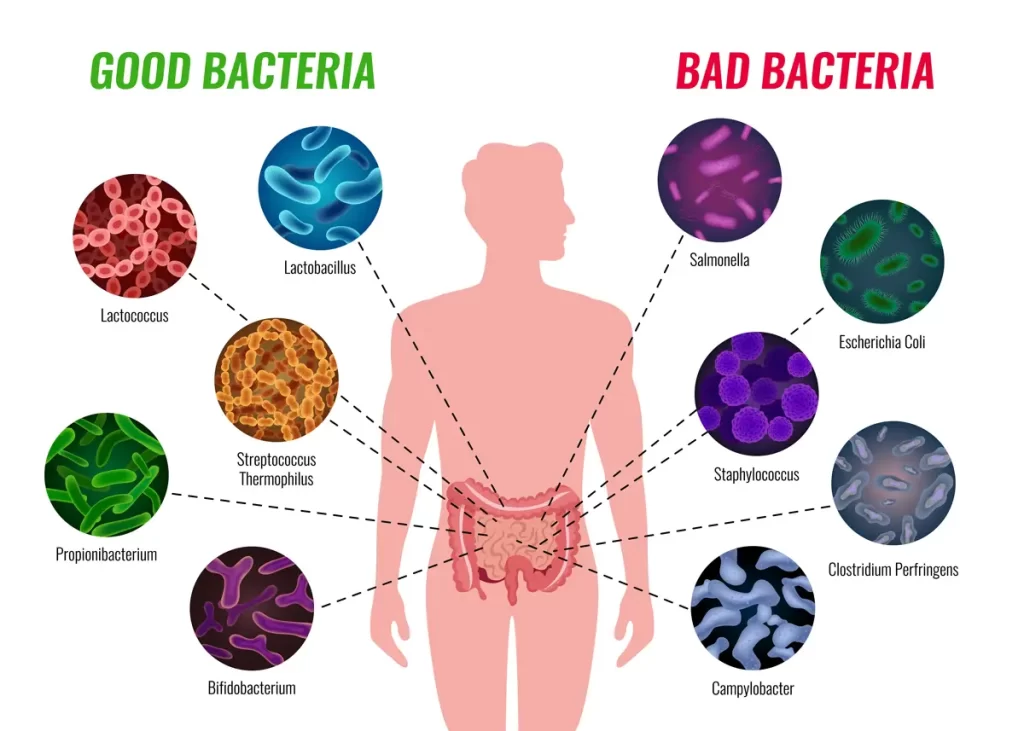We often hear the phrase “gut health” thrown around, but what does it actually mean? In the world of nutrition and wellness, gut health is the process of ensuring that your digestive system is in optimal working condition. This includes taking measures to ensure that beneficial bacteria are present in the gastrointestinal tract and that waste products are eliminated effectively. The importance of gut health may not be immediately apparent, but its effects are far-reaching—from improving mental clarity and mood to boosting physical performance and strengthening immunity. We’ll explore the importance of gut health and discuss specific steps you can take to improve it.
What is gut health?
Gut health is a term used to describe the overall health of your digestive system. This includes your stomach, small intestine, large intestine, and rectum. Your gut also contains a large number of good bacteria that help with digestion and keep your immune system strong.
There are a number of things that can impact your gut health, including what you eat, how much stress you’re under, and whether you have any underlying medical conditions. Making sure you’re eating a healthy diet that includes plenty of fiber and probiotics can help keep your gut healthy. Getting regular exercise and managing stress levels can also be helpful.
If you think you may have a problem with your gut health, it’s important to see a doctor so they can rule out any serious underlying issues. Treating gut problems early on can help prevent more serious problems down the road.
The benefits of gut health
The human gut is home to trillions of bacteria, both good and bad. Good bacteria are important for many things, including helping to break down food, producing vitamins, and protecting us from bad bacteria. Gut health is important for overall health and well-being.

There are many benefits of having a healthy gut, including:
- Better digestion and nutrient absorption: The good bacteria in our gut help us to break down food and absorb nutrients more effectively.
- Stronger immune system: The good bacteria in our gut help to protect us from bad bacteria and keep our immune system strong.
- Reduced inflammation: Good gut health can help to reduce inflammation throughout the body.
- Improved mood: There is a link between gut health and mental health, so a healthy gut can lead to an improved mood.
The best foods for gut health
There are a few key things to look for when seeking out the best foods for gut health. First, focus on whole, unprocessed foods that are rich in fiber. These include fruits, vegetables, whole grains, and legumes. Additionally, look for fermented foods that contain beneficial probiotics, such as yogurt, kimchi, sauerkraut, and miso. Also, make sure to stay hydrated by drinking plenty of water throughout the day.
By following these simple tips, you can help keep your gut healthy and happy!
The worst foods for gut health
There are a few different types of food that can be detrimental to gut health. Some of the worst offenders are processed foods, sugary foods, and fatty foods.
Processed foods are often high in unhealthy fats and sugars, which can upset the delicate balance of the gut microbiome. They can also contain additives and preservatives that can further damage gut health.
Sugary foods feed the bad bacteria in the gut and can lead to inflammation. They can also contribute to weight gain and other health problems.
Fatty foods are difficult for the body to break down and can cause digestive problems. They can also increase the risk of heart disease and other chronic conditions.
How to improve your gut health
The gut is home to a complex and diverse community of microbes that play an important role in human health. Imbalances in the gut microbiome have been linked to a variety of diseases, including inflammatory bowel disease, obesity, and cancer.

There are a number of ways to improve gut health, including:
- Eating a diet rich in fiber: Fiber provides food for the beneficial bacteria in the gut and helps to keep the microbiome diverse and healthy. Good sources of fiber include fruits, vegetables, whole grains, and legumes.
- Avoiding processed foods: Processed foods are often high in sugar and low in fiber, which can lead to dysbiosis (an imbalance in the microbiome). Instead, focus on eating whole, unprocessed foods.
- Taking probiotics: Probiotics are live microorganisms that can help to restore balance in the gut microbiome. They are available in supplement form or found naturally in fermented foods like yogurt and sauerkraut.
- Reducing stress: Stress has been shown to alter the composition of the gut microbiota. Try to incorporate stress-reducing practices into your daily routine such as meditation, yoga, or spending time outdoors.
Conclusion
As we can see, gut health is of utmost importance for our overall well-being. The food we eat, the lifestyle we lead, and our mental health all contribute to how strong or weak our digestive system becomes. A healthy gut helps us prevent a wide range of illnesses and diseases while also allowing us to enjoy life more fully by providing us with better energy levels and improved moods.
By making sure that you are mindful of your dietary choices, practicing stress-relief activities, taking probiotics regularly, and getting enough physical exercise – you can ensure that you will have a healthier gut in no time!













